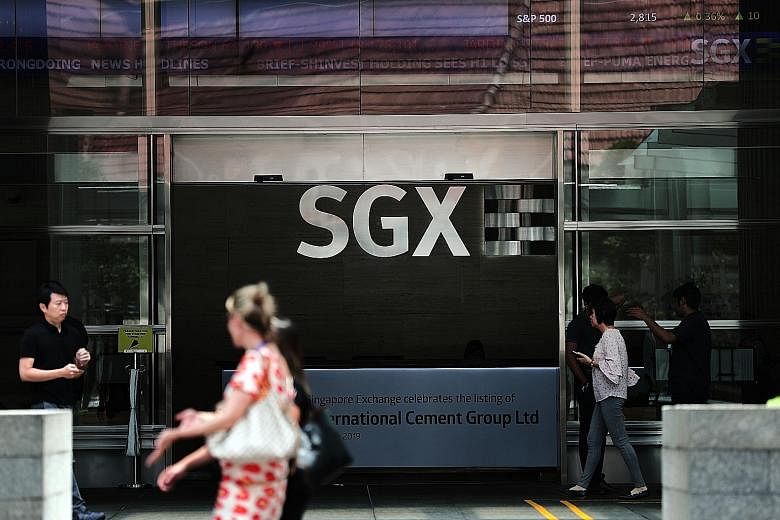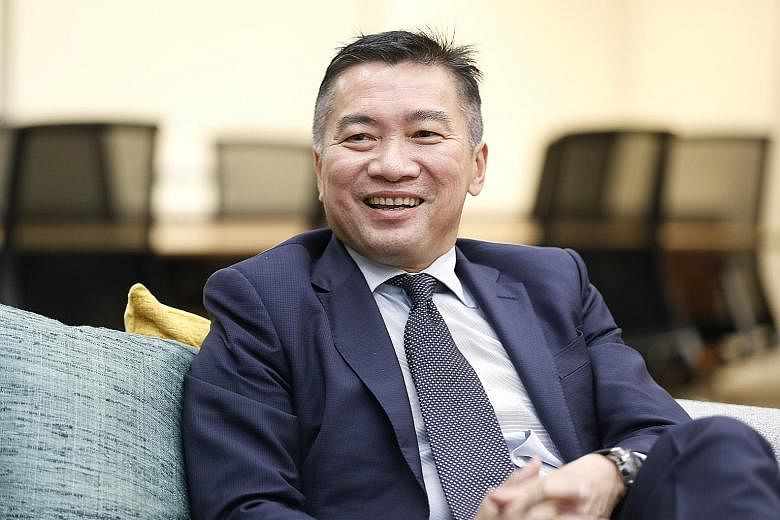The Singapore Exchange (SGX) aims to add products to its lucrative derivatives business and offer billion-dollar South-east Asian start-ups a platform to list shares and bonds, said its chief executive.
Mr Loh Boon Chye noted yesterday: "There's always the focus around (initial public offerings) and associated capital markets but participants on our exchange look beyond just the stock market.
"They think about us as a derivatives, foreign exchange, commodities and freight market and also increasingly a fixed-income market."
The SGX's move comes as it is being overshadowed by Chinese-led multi-billion-dollar fundraising in Hong Kong, while bourses such as Thailand's emerge as strong rivals.
Average daily securities turnover at the SGX was US$791 million (S$1 billion) in May, US$1.8 billion at the Thai exchange and US$12.4 billion in Hong Kong, said Refinitiv data.
Trading volumes dropped here after the 2013 penny stock crash battered investor confidence, while weak valuations have led to a spate of delistings.
"IPO is not a destination, it's only a process. Our secondary fundraising typically is three to four times of the IPO market," said Mr Loh.
Bond listings are also a key part of the SGX offerings, said Mr Loh, a veteran banker who joined the company four years ago.
SGX revenue from trading equities, commodities and foreign exchange derivatives jumped 30 per cent in June-March to comprise 50 per cent of the total. Revenue from equities and fixed income fell 16 per cent and accounted for 39 per cent.
Growing demand from international investors to hedge against exposure to iron ore, coal, Indian stocks and other asset classes pushed SGX revenue to a record high last year.
"We will be looking to launch single-stock futures. We have that on India and will look to launch more, not just on our Singapore market but we can launch it on other equity markets," said Mr Loh.
The SGX has improved its market liquidity, strengthened its regulatory framework and introduced a dual-class share system in recent years with an eye on potential IPOs from regional start-ups with billion-dollar valuations, such as ride-hailing firms Grab and Go-Jek and e-commerce company Tokopedia.
Even so, analysts said the exchange will have difficulty replicating its success as a global venue for business trusts and real estate investment trusts (Reits).
The US$3 billion IPO of warehouse provider GLP in 2010 was the last primary issue to raise over US$500 million on the SGX, excluding business trusts or Reits, said Refinitiv.
GLP was taken private last year at double its valuation.


